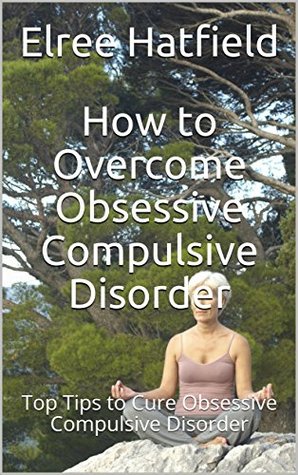Read How to Overcome Obsessive Compulsive Disorder: Top Tips to Cure Obsessive Compulsive Disorder - Elree Hatfield file in PDF
Related searches:
Obsessive–compulsive disorder (ocd) is a mental disorder in which a person has certain thoughts repeatedly (called obsessions) or feels the need to perform certain routines repeatedly (called compulsions) to an extent that generates distress or impairs general functioning.
Obsessive compulsive disorder can be a difficult, confusing experience. To overcome ocd, you need a clear understanding of how ocd works. Obsessive compulsive disorder bedevils millions of people with repetitive thoughts and rituals.
Nov 22, 2014 obsessive-compulsive disorder (ocd) is a pattern of thinking that leads individuals to have unwanted thoughts (obsessions) and to repeat.
Obsessive compulsive disorder is treated with a combination of: psychological support, in some cases medication use, helpful strategies to reduce anxiety, and ongoing social/family support. The goal is to help someone learn about their own thought patterns, begin to recognize when fears are irrational, and then to gradually stop compulsive.
Resources and help overcoming obsessive thoughts are also described.
Obsessive-compulsive disorder (ocd) is a common mental health problem. Symptoms typically include recurring thoughts and repetitive actions in response to the recurring thoughts. A common example is recurring thoughts about germs and dirt, with a need to wash your hands repeatedly to 'clean off the germs'.
Hocd stands for homosexual obsessive compulsive disorder and is a term that is used to describe having unwanted intrusive thoughts in relation to your sexual preference. Also known as sexual orientation ocd� a form of ocd where the individual experiences doubt and mistakenly thinks their sexual preference is changing.
Several types of psychotherapy can be used to help someone with ocd manage obsessive thoughts.
How can i overcome my ocd? there are lots of steps that you can take for yourself that will help you to overcome obsessive compulsive disorder. Treatment approaches for ocd can broadly be divided in behavioral (typically exposure and response prevention) and cognitive-behavioral types, although they overlap to a considerable degree.
Obsessive compulsive disorder (ocd) is a common form of anxiety disorder involving distressing, repetitive thoughts that can affect anyone regardless of gender, age, ethnicity or socioeconomic status.
Mar 22, 2017 freedom from ocd is not about stopping the mind from offering up strange and occasionally disturbing thoughts but learning how to recognize.
Diagnostic interview assessed neuropsychiatric disorder comorbidity in 334 individuals with obsessive-compulsive disorder. Social skills training in a case of obsessive-compulsive disorder with schizotypal personality disorder.
Ocd is characterized by obsessive thoughts that lead to compulsive behaviors. Furthermore, the thoughts are anxiety-provoking, compelling the person to carry out certain behaviors to temporarily relieve the anxiety.
Compulsive behaviors come in many forms, all of which can become debilitating or even dangerous. Hoarders, for instance, are unable to part with even the most worthless possessions.
If you have obsessive-compulsive disorder (ocd), chances are that your persistent obsessive thoughts and time-consuming compulsions keep you from enjoying life to the fullest. But when you are in the habit of avoiding the things you fear, the idea of facing them head-on can feel frightening and overwhelming.
From hoarding to handwashing to forever checking the stove, obsessive-compulsive disorder (ocd) takes many forms. It is an anxiety disorder that traps people in repetitive thoughts and behavioral.
As with resisting compulsions, you can overcome disturbing, obsessive thoughts by learning to tolerate them through exposure and response prevention.
Avoidance: essentially, efforts aimed at not facing or not experiencing an anxiety-triggering stimulus.
Your recovery work should include the practice of regular, scheduled exposure to the obsessive thoughts.
Obsessive compulsive disorder (ocd) is a serious mental health condition that causes individuals to experience a variety of symptoms that typically fall into one of two categories: ‘obsessions’ and/or ‘compulsions’.
If you think that you might have ocd, you should speak to your doctor.
Obsessive compulsive disorder (ocd) is an anxiety disorder in which a person becomes obsessed with a certain aspect of life they feel is dangerous, life-threatening, embarrassing, or condemning. While many people claim they have ocd, often citing a need to see symmetrical objects or the like, actual diagnosed ocd is a real disorder that means.
It's not me: it's my ocd: overcoming obsessive compulsive disorder my cynical 16-year-old face would grimace each and every time.
Overcoming obsessive compulsive disorder: a self-help guide using cognitive behavioral techniques [veale, david, willson, robert] on amazon.
Jul 9, 2019 essentially, successfully helping someone overcome harm ocd typically entails a combination of 4 components: education, mindfulness,.

Post Your Comments: